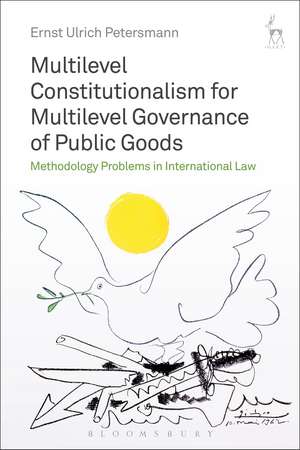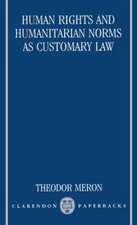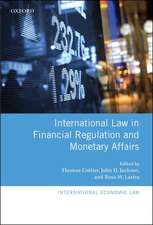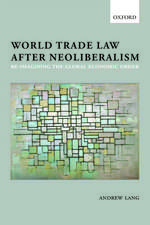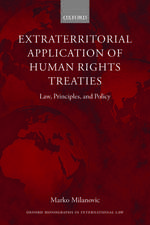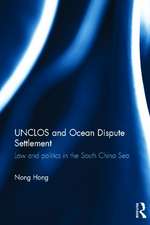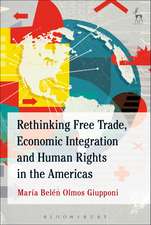Multilevel Constitutionalism for Multilevel Governance of Public Goods: Methodology Problems in International Law
Autor Professor Dr Ernst Ulrich Petersmannen Limba Engleză Hardback – 11 ian 2017
| Toate formatele și edițiile | Preț | Express |
|---|---|---|
| Paperback (1) | 323.19 lei 6-8 săpt. | |
| Bloomsbury Publishing – 29 mai 2019 | 323.19 lei 6-8 săpt. | |
| Hardback (1) | 270.52 lei 3-5 săpt. | +40.13 lei 6-12 zile |
| Bloomsbury Publishing – 11 ian 2017 | 270.52 lei 3-5 săpt. | +40.13 lei 6-12 zile |
Preț: 270.52 lei
Nou
Puncte Express: 406
Preț estimativ în valută:
51.77€ • 55.35$ • 43.16£
51.77€ • 55.35$ • 43.16£
Carte disponibilă
Livrare economică 27 martie-10 aprilie
Livrare express 12-18 martie pentru 50.12 lei
Preluare comenzi: 021 569.72.76
Specificații
ISBN-13: 9781509909124
ISBN-10: 1509909125
Pagini: 416
Dimensiuni: 156 x 234 x 32 mm
Greutate: 0.79 kg
Editura: Bloomsbury Publishing
Colecția Hart Publishing
Locul publicării:London, United Kingdom
ISBN-10: 1509909125
Pagini: 416
Dimensiuni: 156 x 234 x 32 mm
Greutate: 0.79 kg
Editura: Bloomsbury Publishing
Colecția Hart Publishing
Locul publicării:London, United Kingdom
Caracteristici
An original monograph which will be of interest to academics within the fields of public international law and constitutional law.
Notă biografică
Ernst Ulrich Petersmann is emeritus professor and former head of the law department of the European University Institute at Florence (Italy). He combined 40 years of legal practice in German, European, UN, GATT and WTO governance institutions with teaching international and European law at numerous universities in Germany, Switzerland, Italy, the USA as well as in African and Asian countries. He was secretary, member or chairman of numerous GATT/WTO dispute settlement panels and chairman of the International Trade Law Committee of the International Law Association (1999-2014).
Cuprins
Introduction: From Democratic and Republican to CosmopolitanConstitutionalism in Multilevel Governance of Public Goods I. Overview II. Does Multilevel Governance Require Multilevel Constitutionalism? III. Why 'Globalization' Requires Constitutionalizing Multilevel Governance of Public Goods for theBenefit of Citizens IV. Constitutional Failures of 'Disconnected' UN, WTO and EU Governance 1. Human Rights, 'Constitutional' Treaty Interpretation and Judicial Protection of Individual Rights in Multilevel Governance of Public Goods I. Introduction II. The Customary Law Requirement of Treaty Interpretation and Adjudication in Conformity with'Principles of Justice' III. Legal Fragmentation and Reintegration as Dialectic Methods for Reconciling 'Principles of Justice'and Developing International Law IV. Global Democracy? Human Rights Require 'Connecting Constituent and Constituted Powers'through 'Cosmopolitan Constitutionalism' V. Constitutionalizing UN/WTO Governance through Judicial Protection of Cosmopolitan Rights? Failuresof the EU's 'Cosmopolitan Foreign Policy Constitution' VI. Conclusion: Multilevel Governance Must Promote the 'Six-Stage Sequence' of Democratic, Republicanand Cosmopolitan Constitutionalism 2. Constituting, Limiting, Regulating and Justifying Multilevel Governance through Multilevel'Republican Constitutionalism' I. The Gap Between Theory and Practice in Multilevel Governance of Global Public Goods II. 'Collective Action Problems' and Comparative Institutional Analyses: Examples from MultilevelEconomic and Environmental Governance III. How to Move from the 'Washington Consensus' to the 'Geneva Consensus' in Multilevel Governance ofPublic Goods? The Example of the WHO Framework Convention on Tobacco Control IV. How to 'Constitutionalize' Multilevel Trade Governance beyond the EU and EEA? Failures ofTransatlantic Free Trade Agreements V. Conclusion: Courts of Justice Must Promote Legal Consistency in Multilevel Dispute Settlement in Conformity with Cosmopolitan Rights 3. Civilizing and Constitutionalizing 'Disconnected' UN, WTO and EU Governance Require 'CosmopolitanConstitutionalism': Legal Methodology Challenges I. From 'Constitutionalism 1.0' to 'Constitutionalism 4.0' II. Four 'Constitutional Functions' of Cosmopolitan Rights and the Emergence of 'Cosmopolitan International Law' III. Need for Integrating the Competing Conceptions of International Economic Law: From Fragmentation toConvergence in International Law IV. Successful 'Constitutionalization' of 'Disconnected Diplomatic Governance' through Reforms ofInternational Investment Law? V. Market Citizens, State Citizens and Cosmopolitan Citizens: Looking for 'Hercules' in 'DiscourseJustifications' of Multilevel Governance VI. Conclusion: Lessons from Democratic, Republican and Cosmopolitan Constitutionalism
Recenzii
This book is a unique opportunity for the reader to understand why many treaties, agreements and international laws do not function in our present day.
